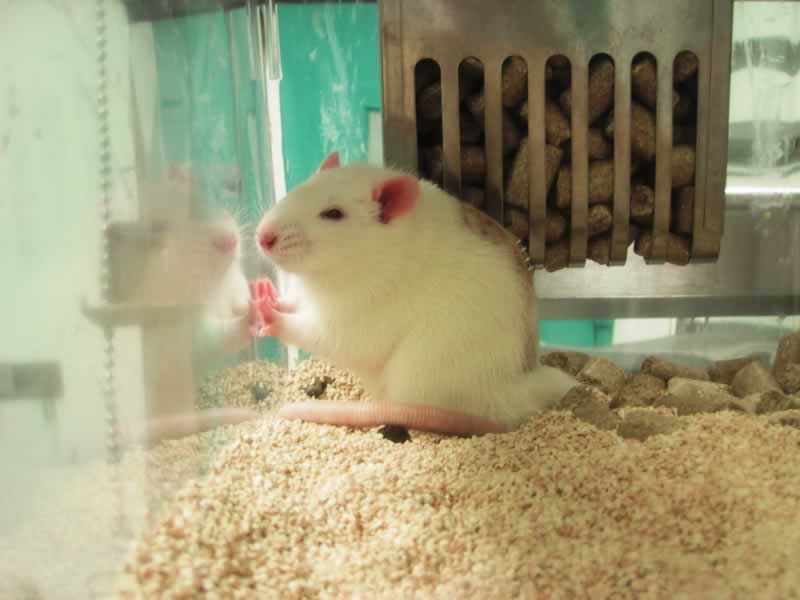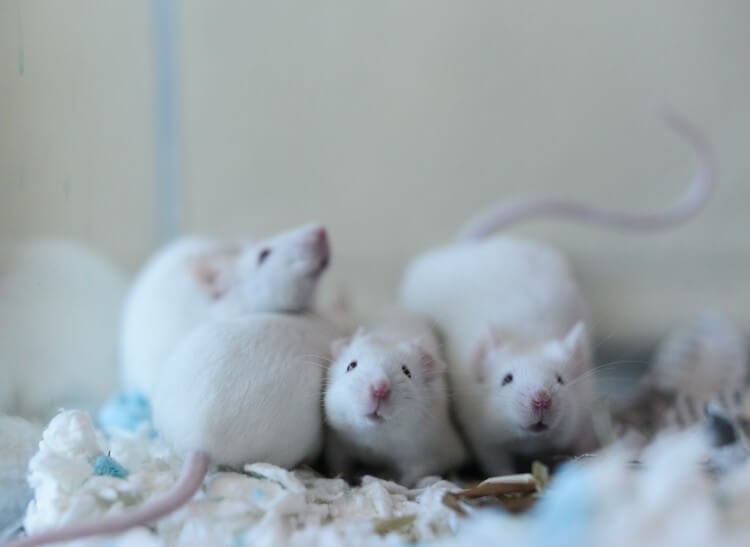The American Psychological Association Advocates Killing Animals in New Article
The American Psychological Association (APA) apparently believes that breakthroughs in treating mental health problems in humans will come only if experimenters are allowed to kill more animals.
The APA is wrong.
In a recent article published on its website, the APA outlines its misguided stance on animal experimentation, making it clear that the organization is no fan of compassionate research methods and lauding animal testing as the best and most reliable method to achieve success in treating human maladies.
The APA’s article, titled “Urging NIH to Resist Hype of Alternatives to Animal Studies,” calls on the National Institutes of Health (NIH) to encourage more cooperation between monkey experimenters and developers of non-animal alternatives, further throwing its lot behind pointless and deadly experiments.
This is a curious departure from the organization’s stance in 2012, when its own ethics guidelines advocated considering non-animal methods. “Consideration should be given to the possibility of using non-animal alternatives. Some procedures that can be justified for research purposes may not be justified for educational purposes,” reads the APA’s Guidelines for Ethical Conduct in the Care and Use of Nonhuman Animals in Research.
But the APA’s new position urges NIH “to continue to let scientific opportunity and effectiveness drive the research funded by the agency and not to be pressured by the advocacy of anti-animal research organizations working through their congressional champions.”
We agree with the first half of this sentence but not the second.
For decades, PETA has urged NIH to follow the science. And the agency even admits that 95% of all new drugs that are shown to be safe and effective in tests on animals fail in human trials because they don’t work or are dangerous. These aren’t winning numbers.
Here are some other facts that the APA may want to chew on before spitting out more baseless drivel:
- More than 90% of basic scientific discoveries, most of which are from experiments on animals, fail to lead to human treatments.
- Eighty-nine percent of preclinical studies, most of which involve animals, can’t be reproduced.
- In a recent analysis of “rodent behavioural tests of anxiety,” researchers found that the vast majority of tests lacked scientific validity and weren’t able to predict which drugs would relieve anxiety in humans.
- In a survey of 121 animal studies claiming to investigate attention-deficit/hyperactivity disorder (ADHD), only five were found to be in any way relevant to the hypotheses of the medical articles in which they were cited. The authors of the survey concluded that “animal research has contributed very little to contemporary understanding of ADHD.”
- Experiments on animals have been cited as the primary source of drugs’ failure in human neurobehavioral trials. The primary reason? Even though animals feel many of the same emotions that we do, their brains are fundamentally different in ways that are critically important in biomedical and molecular research. For example, the brain cells in mice that respond to drugs meant to treat depression, anxiety, and bipolar disorder are drastically different from those in humans.
More Effective Animal-Free Research Methods Exist
Reliable and economical non-animal methods are readily available for a variety of testing applications. Many basic scientific and disease studies that use animals—which fail to accurately translate to humans—can be replaced with organ-on-chip technology, sophisticated computer simulations, 3D cultures of human cells, epidemiological studies, and other more superior modern methods.
The results from these methods are directly applicable to humans, speeding the process toward pharmaceutical discovery and commercialization. But while organizations such as the APA continue to advocate for demonstrably ineffective science that slows the development of treatments for people who continue to suffer, these more effective, ethical, and economical animal-free methods are starved for resources.
What You Can Do
Please TAKE ACTION and urge your members of Congress to support PETA scientists’ Research Modernization Deal. Backed by thousands of physicians, it maps out a strategy for replacing the use of animals in experiments with human-relevant methods.



